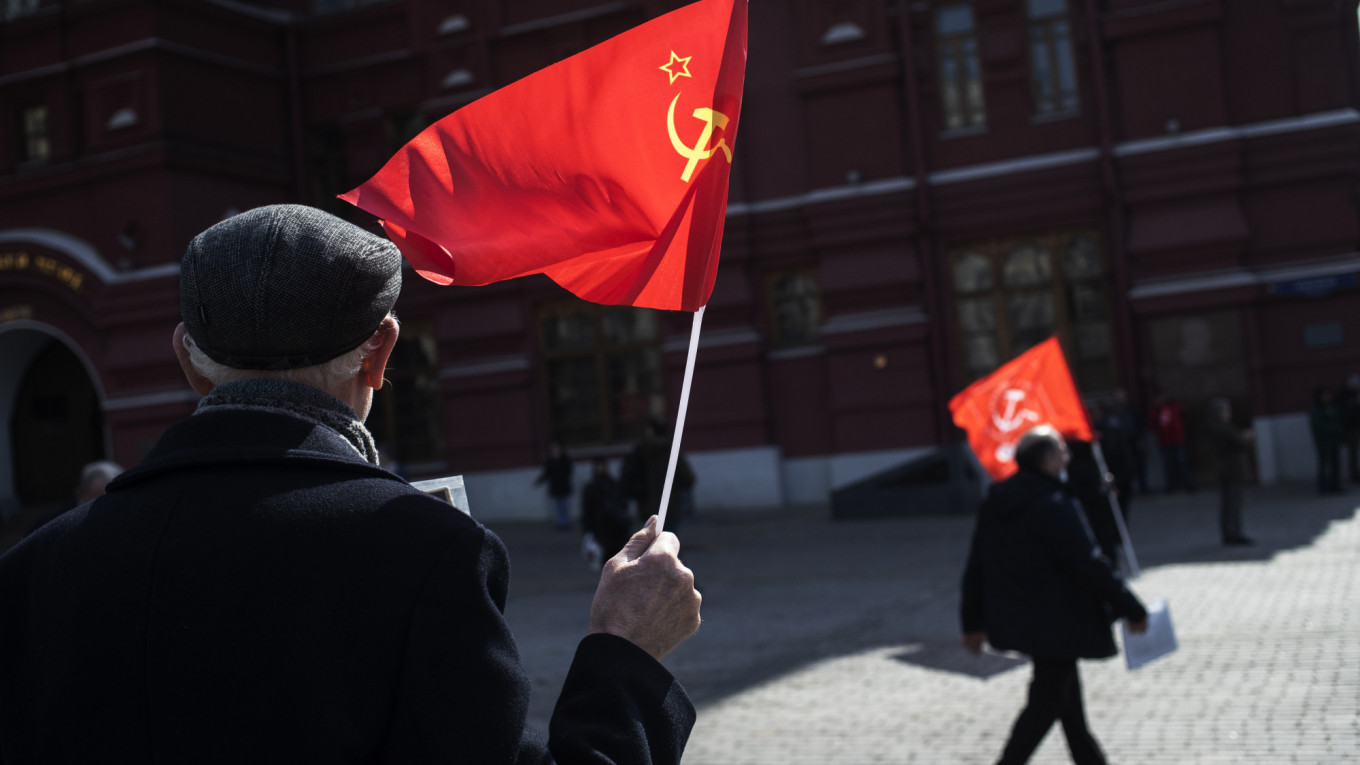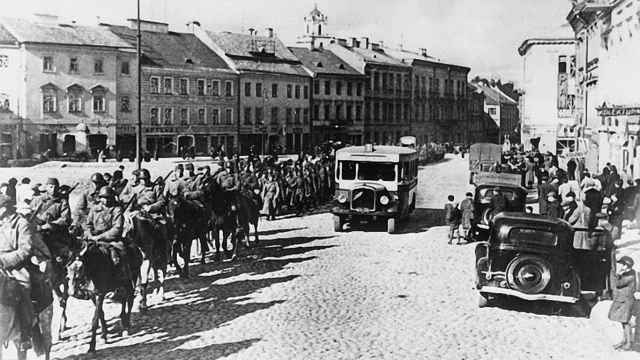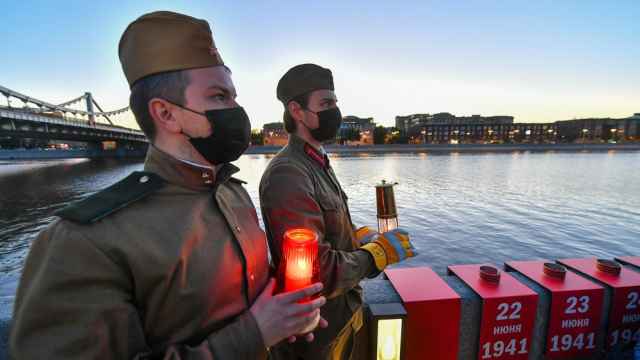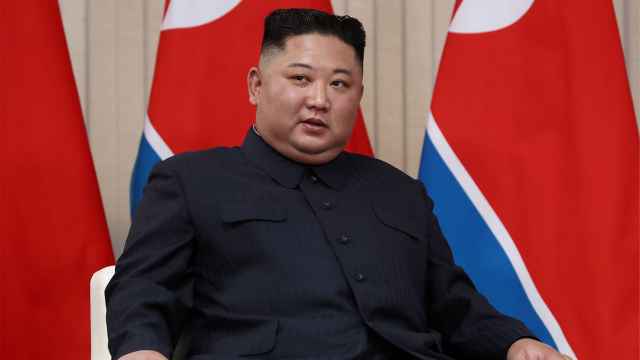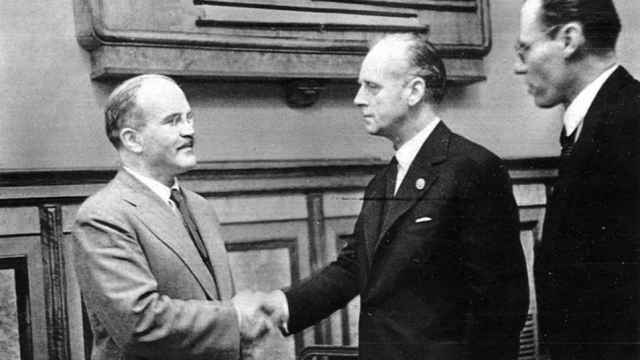Russian lawmakers have proposed banning comparisons between the Soviet Union and Nazi Germany as the Kremlin seeks to revive interest in the memory of World War II and praise for Russia’s Soviet past.
The bill submitted in the lower-house State Duma on Wednesday follows President Vladimir Putin’s orders earlier this year to legally prohibit publicly equating the two former powers’ roles in the war.
The proposed bill would also ban denying the Soviet people's “decisive role” in the defeat of Nazi Germany as well as “the humanitarian mission of the U.S.S.R. in the liberation of European countries.”
“Our principled position is to put a legislative barrier to the explicit insults against our grandfathers and great-grandfathers, disgusting speculations about our Victory and allowing political capital to be earned for speaking ill of our ancestors,” its authors wrote.
In an explanatory note published on the Duma's website, the bill’s co-authors noted that the ban “leaves space for historical research and scientific discussions, including with respect to specific individuals’ actions.”
Co-author Yelena Yampolskaya said on Facebook that the legal ban does not infringe on freedom of speech but maintains to instill “decency.”
“The Soviet army is the liberator and therefore the benefactor of Europe. Discussions of specific situations are needed, but without forgetting that the Soviet Union, the Russian people were fighting the main battle against the universal evil of Nazism,” she wrote.
The proposed amendments to Russia’s law cementing the Soviet victory over the Nazis do not appear to impose criminal punishment for equating the U.S.S.R. with Nazi Germany.
They follow Putin’s criticism toward the European Parliament’s 2019 condemnation of a Soviet-Nazi non-aggression treaty and a year of mutual recriminations with Poland over which country was responsible for the war’s outbreak.
Russia disagrees with its former satellite states over the role that Soviet dictator Josef Stalin played in World War II for signing the Molotov-Ribbentrop Pact with Nazi Germany.
The lawmakers’ proposal also comes days before Russia marks 76 years since the Soviet victory in World War II with a massive military parade on Red Square.
To become law, the amendments need three votes of approval in the State Duma and one in the upper-house Federation Council before it can receive Putin’s signature.
A Message from The Moscow Times:
Dear readers,
We are facing unprecedented challenges. Russia's Prosecutor General's Office has designated The Moscow Times as an "undesirable" organization, criminalizing our work and putting our staff at risk of prosecution. This follows our earlier unjust labeling as a "foreign agent."
These actions are direct attempts to silence independent journalism in Russia. The authorities claim our work "discredits the decisions of the Russian leadership." We see things differently: we strive to provide accurate, unbiased reporting on Russia.
We, the journalists of The Moscow Times, refuse to be silenced. But to continue our work, we need your help.
Your support, no matter how small, makes a world of difference. If you can, please support us monthly starting from just $2. It's quick to set up, and every contribution makes a significant impact.
By supporting The Moscow Times, you're defending open, independent journalism in the face of repression. Thank you for standing with us.
Remind me later.


